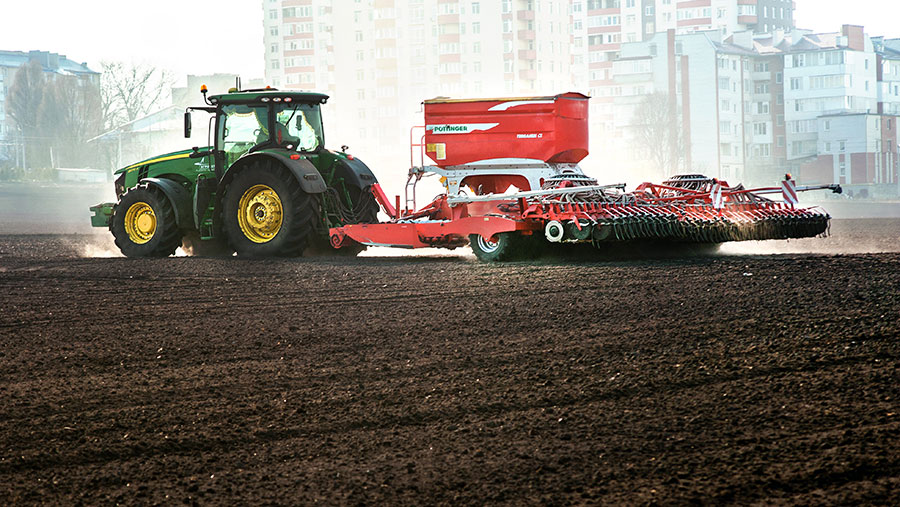Ukraine war: Farmers resolve to get spring crops planted
 © Pavlobaliukh/Adobe Stock
© Pavlobaliukh/Adobe Stock Ukrainian farmers are demonstrating strength, unity and resolve in the face of the Russian invasion and are focused on producing as much food as possible, says an expert with 20 years’ experience working in the Black Sea region.
“There is a unity in the honourable profession of producing food. Everybody is feeling that right now,” said Keith Dawson, a UK-based crop expert and director of a farming company based in Ukraine.
“The focus of the Ukraine farming community is getting as much done as they can. Farmers realise this is important – not just for Ukraine, but for the world.
See also: How Ukraine war will impact its farming – agronomist’s view
“Farmers are farmers all over the world. Ukrainian farmers are all working hard for general food security. They deserve all the support we can muster for them.”
Russia and Ukraine combined account for 25% of global wheat exports and Ukraine alone for 13% of maize exports.
Ukraine is also the biggest exporter of sunflower oil and second largest for barley. It is first or second in European reserves for many minerals such as uranium, titanium, manganese and mercury, and has the largest global iron ore reserves.
Dr Dawson said it was humbling to see the hard work going on on the ground. “Farming operations are continuing where they can. Fertiliser spreading is ongoing, the vast majority of which will be inorganic fertiliser, but availability will be limited.
“There is resolve, whether it’s to defend Ukraine, or plant the crops.”
Spring drilling
Farmers in Ukraine would try to get as much crop sown as possible this spring. But all were concerned about the effect of fuel and fertiliser shortages on their businesses, Dr Dawson said.
“It’s about dealing with input shortages and people trying to see through the fog of war and what they can do to start another annual cycle,” he explained. “These are decisions that we have to live with for the next 12 months and they are very difficult decisions at the moment.”
Dr Dawson fears the ramifications from the current situation will be like in 2010, when wildfires and drought in Russia and Ukraine hit crop yields, bread prices doubled and led to civil unrest in countries that rely on imports, including Egypt and Indonesia. This led to the so-called Arab spring.
All crop exports from the Black Sea or Azov Sea go through ports such as Odessa, Mariupol and Mykoliav – and these are all under threat.
“The key thing will be the logistics. Russia is already using refugees as a weapon. There is no reason why they wouldn’t use grain. Western sanctions may also restrict Russian grain exports,” said Dr Dawson.
“Whether the ports will be damaged or still open for grain exports remains an open question.”
Price pressure
The supply and demand of grain was already tight, and war in Ukraine was already having a significant effect on prices. This price pressure looked set to continue, Dr Dawson said.
“There’s an old proverb I often use: ‘The man with a full stomach has many problems. The man with an empty stomach has only one problem’,” he added.
Dr Dawson said Ukrainian farmers were using their machinery to build defensive structures for the Ukrainian Army and provide drivers for local police militia. Each village has roadblocks and armed militia checking papers to identify Russian saboteurs.
He believes Russia’s president, Vladimir Putin, has seriously underestimated the resolve of the people of Ukraine, including its farmers.
“Ukraine is a great country. The people make great friends, but they are the worst enemies,” said Dr Dawson.
“They have surprised the world by how they have managed to hold the Russians where they can.”
Dr Dawson has set up a JustGiving fundraising campaign to raise funds for Ukrainian refugees.
